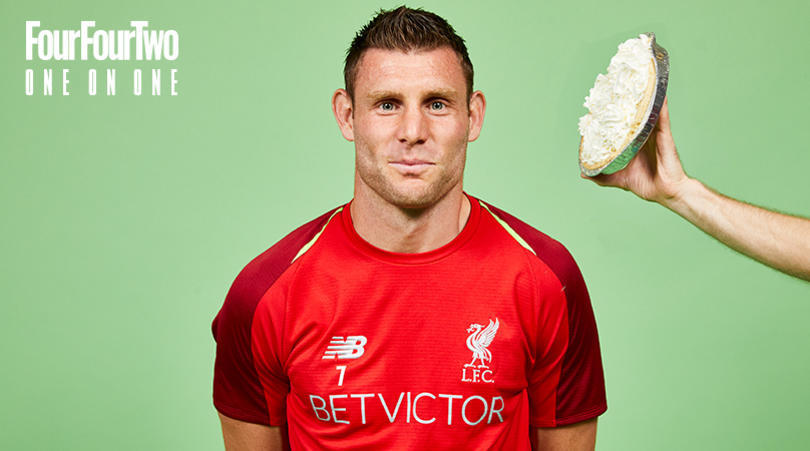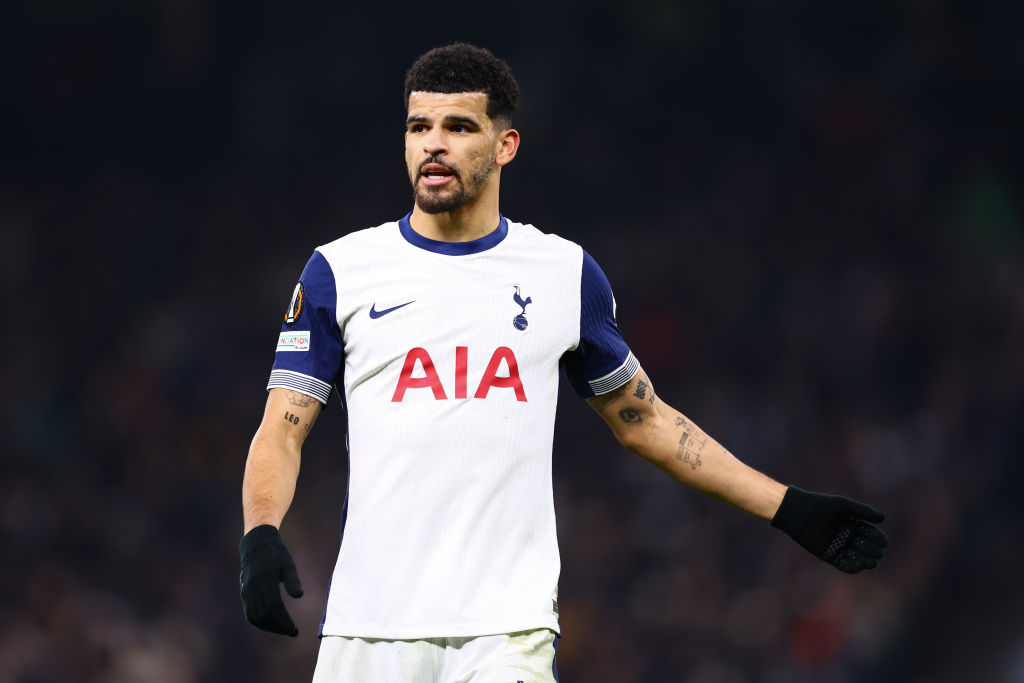The big interview: Rafael Benitez – "I have no regrets because the things I said were what the fans were saying"
"My relationship with Fergie was good until we started to compete with them – then everything changed"
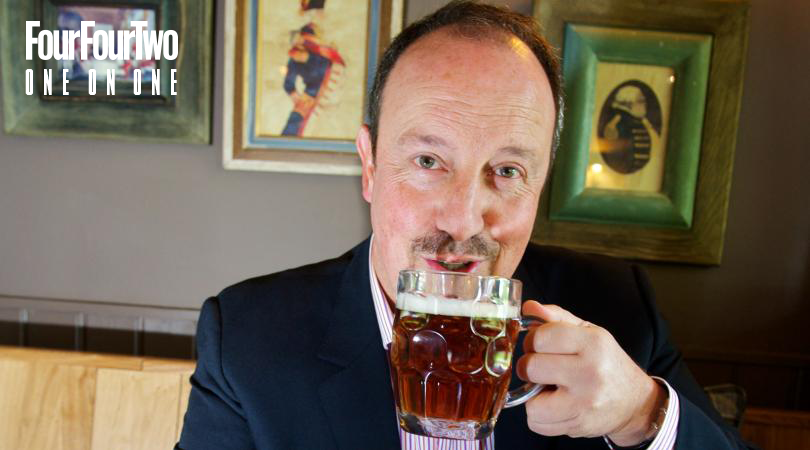
Having been invited by Rafael Benitez to join him at his local, a most welcoming hostelry in Irby called The Anchor, FourFourTwo thinks it’s only right to get the first round in. With a cellar “stuffed with wines from around the globe” and a tasty selection of cask ales, the choices are endless. Benitez, though, is a teetotaller – and a cheap date.
The water may be still but the former Liverpool manager is in sparkling form as he ploughs his way through your questions. From his childhood in Madrid to his Union Jack Mini, nothing is off-limits for Spain’s most successful managerial export to the UK. Relaxed and recharged after a six-month break, Benitez speaks of the past, the present and the future, reliving the glory of Istanbul, lifting the lid on life at Anfield under Hicks and Gillett, and even revealing the secret behind the goatee beard that is now his trademark.
There is also a display of his tactical nous, using chunky chips as players, that has the pub’s regulars enraptured. But he saves his best for the readers of FFT, raising a glass out of respect for your testing questions.
Is it true your mum was a Real Madrid fan and your dad supported Atletico? How did you choose?
Simon Wellings, Madrid
It is true. My father was a supporter of Atletico and my mum followed Real Madrid, but it was an easy choice for me because my father sent me to Real for a trial and they picked me.
How would you describe yourself as a player Any modern-day comparisons?
Get FourFourTwo Newsletter
The best features, fun and footballing quizzes, straight to your inbox every week.
Daniel Baylis, via email
When I was in the academy at Real Madrid I played first as a winger, then a midfielder, then a sweeper. I think my best position was sweeper but usually I played as a holding midfielder. It’s hard to compare myself with today’s players because the game is different, but my qualities were that I could pass the ball with both feet, I was good in the air and I was fit. But I wasn’t the quickest, and in my case that was the difference between being a normal player and a top-class player.
I heard that when you were at Parla, you would help team-mates chat up English girls while on holiday in Majorca...
Richard Lee, Stockton-on-Tees
How can someone know this? That is really funny! The only thing is it was in Tenerife, not Majorca. When I was 20, we went there with AD Parla for four days and I was the only one who could speak any English – not the best, but some English – so I was in the middle of all the conversations.
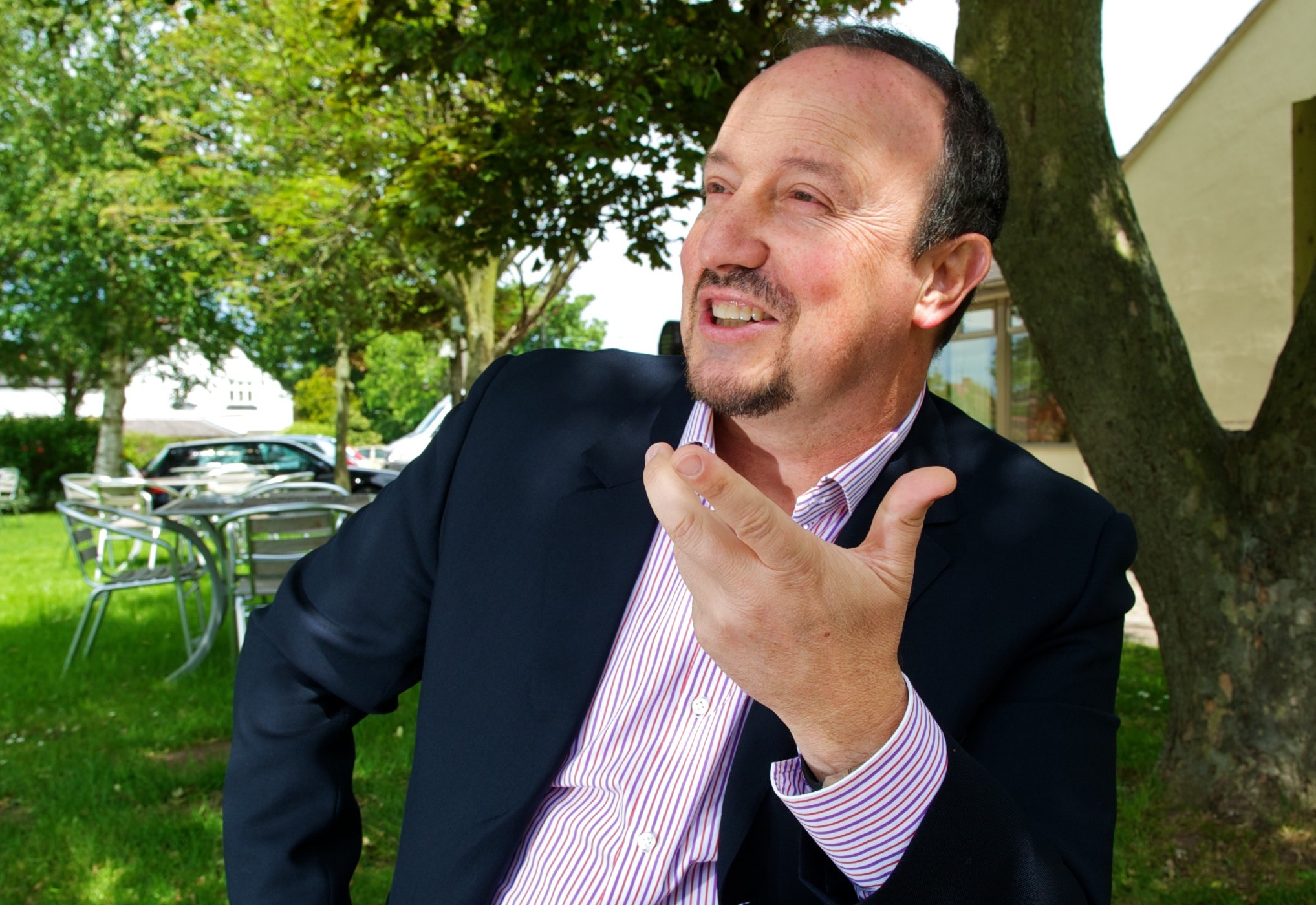
Was management something you always wanted to do, or only once your playing career was cut short by injury?
Martin Davis, via email
I didn’t know at the time, but later on when I looked back I realised this was my passion. I used to go on holiday with my mates in the mountains outside Madrid; we had a team for players aged 16 to 18, and by the time I was 18 I was coaching as well as playing. I was in Real Madrid’s youth team by then so my level was quite good. It was the same when I went to university: I was playing and coaching, and because I was a sweeper I could organise the team from the back.
You spent nine years coaching various Real Madrid outfits, right up to the B team. How important was this apprenticeship?
Mark Jansen, Copenhagen
The main thing for my development was the winning mentality Real Madrid has. This meant I could learn from different coaches. Every year was an experience – and doing it this way means that when you go into a professional career, you have more knowledge and you are able to use things that you may not even realise you’ve learned. But every manager and coach has to find their own way.
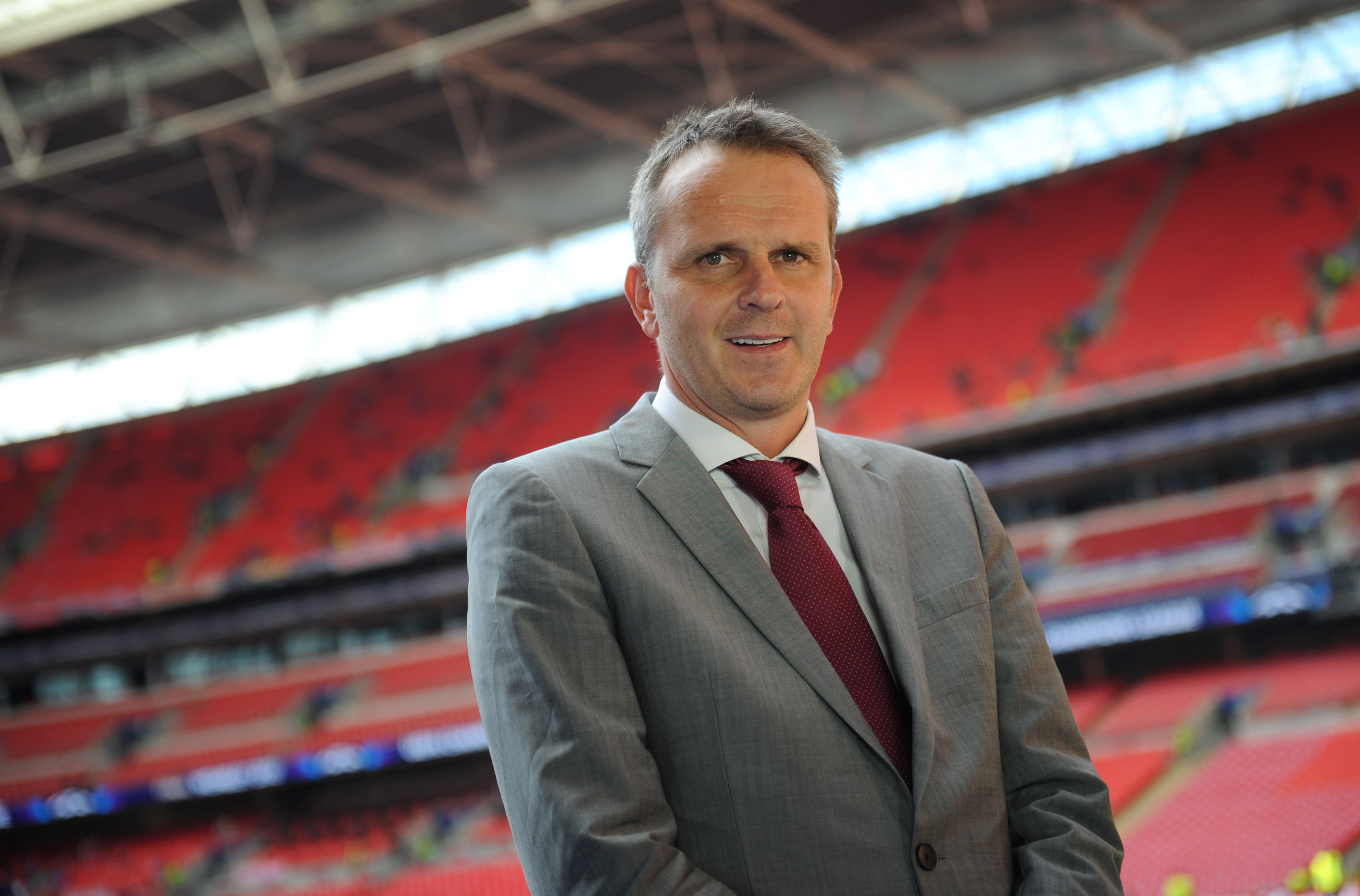
Having broken into first-team management with Real Valladolid, how did it feel to be sacked in your first season, then by Osasuna after nine games? Did you think, “Sod this, I’ve had enough”?
Adam Wynns, Richmond, NZ
The opposite – it gave me even more determination to be a success. It was an extraordinary time at Valladolid: we were promoted to the first division on August 15 because of a financial situation at Sevilla and Celta. The league started on September 1, so we didn’t have much time to prepare. In the end the chairman told me I didn’t have the experience but I was disappointed because, although we were bottom, we were playing good football and improving. It was similar at Osasuna. They wanted to be promoted within one year instead of two – that was the project. The directors were nice people but new to football, and in the end they signed four coaches in one season.
Is it true you drive around in a Union Jack Mini? Surely you can afford something a bit flashier?
James Gee, via email
We bought the Mini when we were in Italy and brought it back with us. We’re very fond of it because it’s a nice car!
Two La Liga titles and a UEFA Cup in three seasons at Valencia. Is it still possible for a coach to do this with a team like that in Spanish football, or are Real Madrid and Barcelona just too far ahead?
Dan Yeo, Cheltenham
They are too far ahead right now. If you look at La Liga now, they are 20 points ahead of the rest. At that time there were more than just two good teams – and we were a very good team, full of ambition.
“I was hoping for a sofa and they bought me a lamp.” Genius – how long did it take you to think of that one?
Alan Batty, Liverpool
I was trying to explain the situation to the Valencia fans, because Nestor Canobbio was a very good player but I was looking for a winger and he was a second striker. So I didn’t want to disrespect him, but he wasn’t the player we needed. It was spontaneous.
How did you manage to win the Champions League with Liverpool in your first season – what were the key ingredients? And we’ve heard the players’ version, but just what was said at half-time in Istanbul? Did you honestly believe you could come back?
David Harrison, via Twitter
We had a very good team spirit, especially in the Champions League where we felt we could beat anyone, because we were able to adapt tactically and play like two different teams. The mentality was also good, and if you look at the final again you will see what I mean when I talk about the spirit.
The most important thing at half-time was what we did, not what we said. Tactically, we changed to play with three defenders and used Dietmar Hamann in the middle to control the space that Kaka had been using. I did tell the players that if we scored just one goal we would be back in the game, and that is what happened. But it was only when we saw the team on the pitch after half-time, and the way they went about things, that we really started to believe.
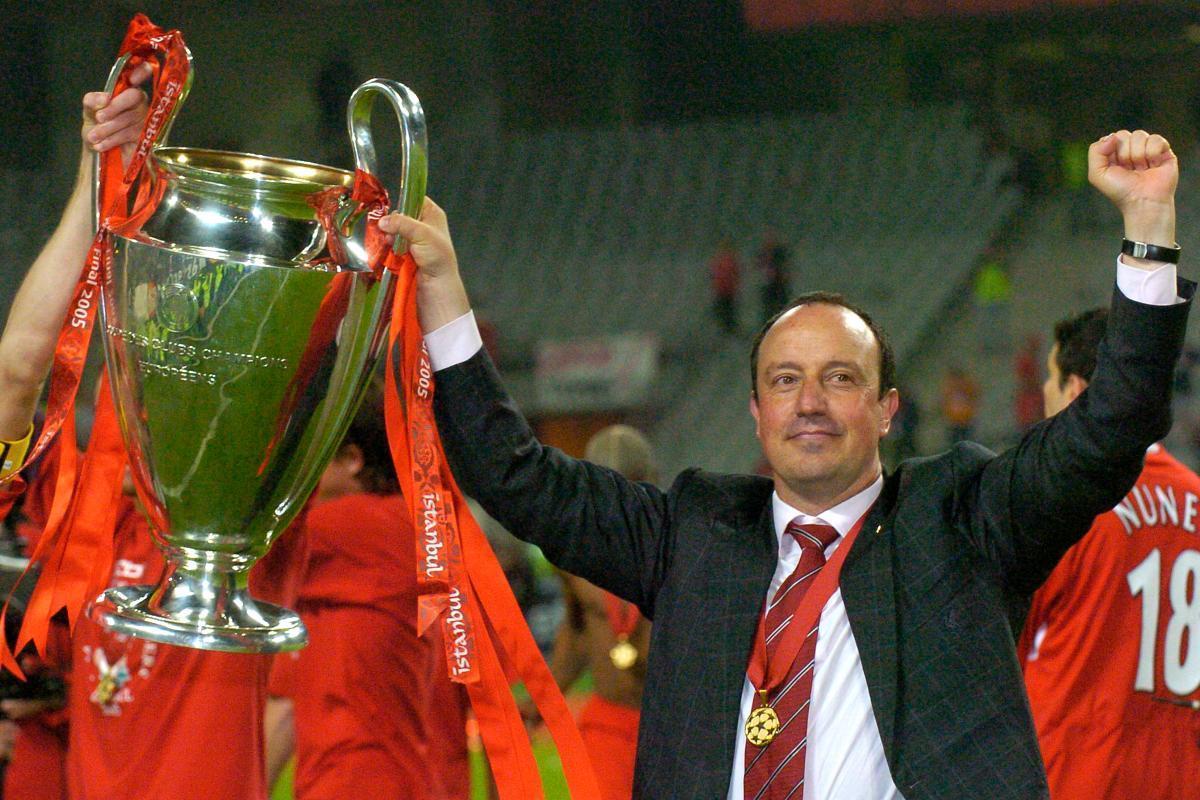
Looking back on the 2008-09 season when Liverpool finished runners-up in the Premier League, was there anything you would have done differently – maybe bought another striker in January after Robbie Keane left?
Alex King, Newcastle
We always had to manage with the resources we had. It’s not easy to think of many things we could have done better, because in the end we lost only two games in the whole season. If you look at last season, the league was won with 80 points and in 2009 we finished with 86.
What made you grow the goatee? Some have suggested it was a mid-life crisis…
Ian Pamment, via Twitter
It was just because I was on holiday and didn’t shave, and at the end I decided to keep it.
How did you feel when Gareth Barry chose Manchester City over Liverpool? Do you think your pursuit of him was to blame for Xabi Alonso leaving?
Alec Davids, via email
As a manager you have to think of the bigger picture, and in this case there was Barry, an English player who could play in a number of positions. With the rules that were coming in we knew we would need more English players so we were trying to be prepared for that. It became more complicated, but I think it was the right thing to try because Alonso was not playing at the same level as before.
What was your relationship with Gillett and Hicks like? Would you have liked to have been in charge under the new owners?
Axel van Dijk, The Hague
It’s not easy when your owners are in a different country and you do not have fluent communication, and I had to accept that. I think the people realised what was happening, how difficult it was and how we were doing our best in the circumstances, especially in the last year when we were without any support from the directors. The difference now is everyone is sticking together and trying to do their best for the club. You do not see anyone thinking about their own self-interest.
Looking back on your time with Liverpool, is the glass half-full because you won the Champions League and the FA Cup, or half-empty because you didn’t win the Premier League?
Daniel Coakley, via Twitter
You always have to see things in a positive light, and we achieved a lot of things. Liverpool had found it difficult to finish in the top four on a regular basis, but in the time we were there we were always qualifying for the Champions League. I don’t think everyone realised just how difficult it was to do that. There were also expectations that we would win the Premier League and that was a key target for us, but it is not easy when you are competing against Arsenal, Chelsea and Manchester United – the best in Europe at the time. We did all we could.
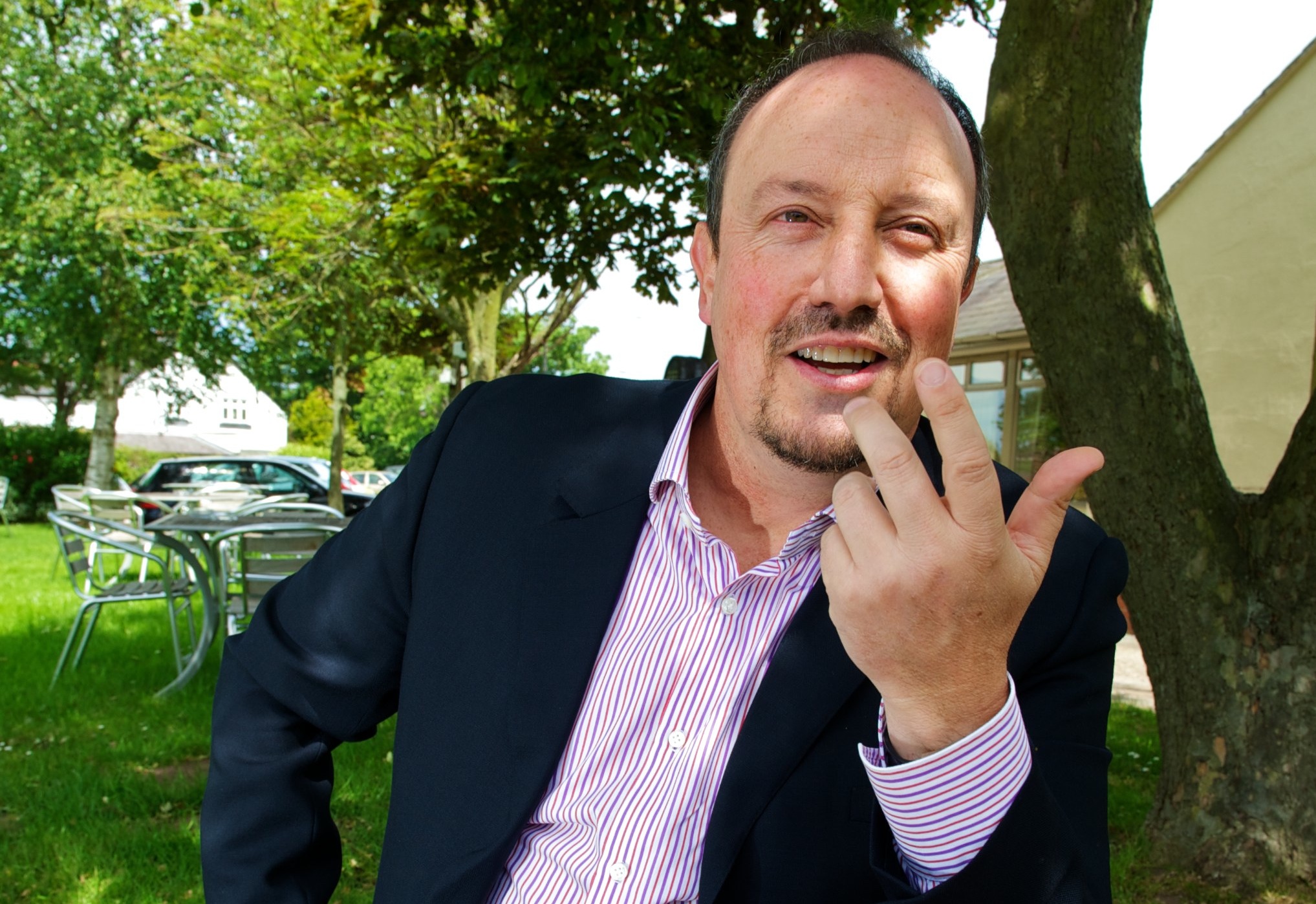
What’s your relationship with Fergie really like – and Jose Mourinho, for that matter? Do you regret the “facts” speech [about the United manager’s “mind games”] that you gave in a January 2009 press conference?
Daniel Jones, Stoke
Our relationship was good until we started to compete with them. We beat United sometimes and we got close to them, and then everything changed. I have no regrets because the things I said were what the fans were saying, and it was the right time because they were under pressure and we were trying to push a bit more. The difference was that they had two games in hand and they won more points than us, so people look at it as a mistake, but it wasn’t.
You were often criticised for not giving homegrown talent enough chances at Liverpool. Do you feel you weren’t given enough credit for bringing Kenny Dalglish back and overhauling the academy?
Will Day, via email
From the beginning we were trying to have an input into the academy but we couldn’t – and we could see that we weren’t producing players, not of the level we wanted to be a top side. So when we finally had the opportunity to control the academy we put some new ideas into it and now you can see the quality is there.
Who is the most talented player you’ve ever worked with? Fernando Torres? Samuel Eto’o? Djimi Traore?!
Neil Woods, Liverpool
I have been really lucky because in the youth teams at Real Madrid I had Raul and Alfonso, then after that I had players like Ruben Baraja, Eto’o, Torres and Steven Gerrard… it is difficult to choose. And Djimi was a good professional! He did a great job for us.
David Silva says you can get decent tapas in Manchester. Have you found anywhere in Liverpool that does good paella?
Rob D, London
When they first arrive all Spanish players are like this – they see the differences between the countries – but little by little you find some places you like. If Silva comes to Liverpool we can find some good Spanish food for him.
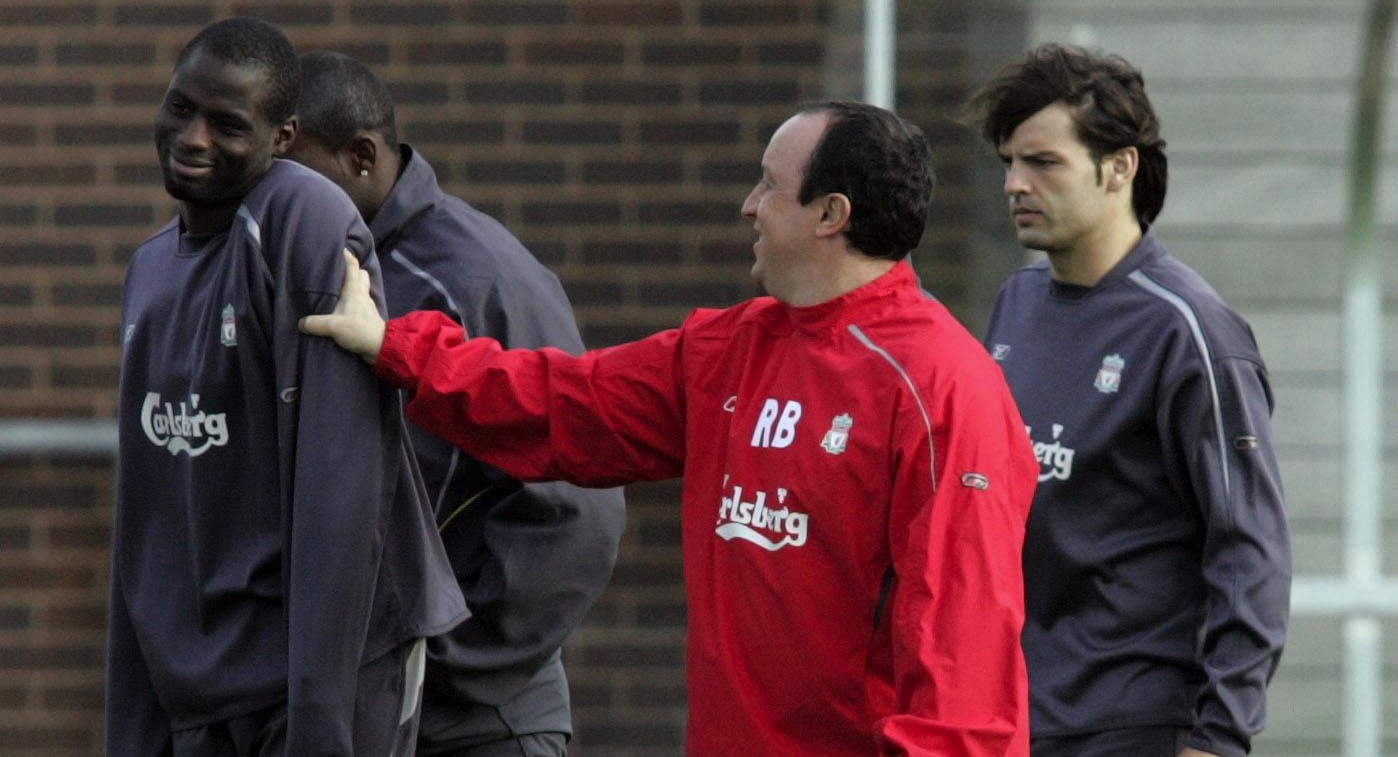
What went wrong at Inter? In hindsight, was it impossible to really be a success at a club who had just won the treble?
M Haniff A Latif, via Twitter
It was a great opportunity. They promised they would sign some players and improve the squad but they didn’t, so things did not work out. Although we were working really hard and with professionalism, we did not have the support we needed and when we had injuries it took too much time for the players to recover, so things became more difficult. It was a pity because with support we could have won more trophies, but I still want to see it as a positive time because we won two – the most important trophy for the club at the time was the FIFA World Club Cup and we won it, so we have to be positive about that.
You still live in the Wirral. Simple question for you, Rafa: Why?!
Steve Dixon, via email
I think it’s a nice place! You have the beach, you have the forest and you have good people who respect you so we are really happy there, especially because the children are settled in the area. The weather is better in the Wirral than it is in the centre of Liverpool because it is a micro-climate, so it isn’t so bad.
You’re known as a football obsessive, but other than watch football, what have you been doing since you left Inter? What do you do with your spare time (when you’re not being grilled by FFT readers)?
Ahmed Laif, London
I have been preparing for the future, analysing my previous job, taking the positives from it and looking at the mistakes, so I am ready for the next challenge. But I have also been enjoying spending time with my family.
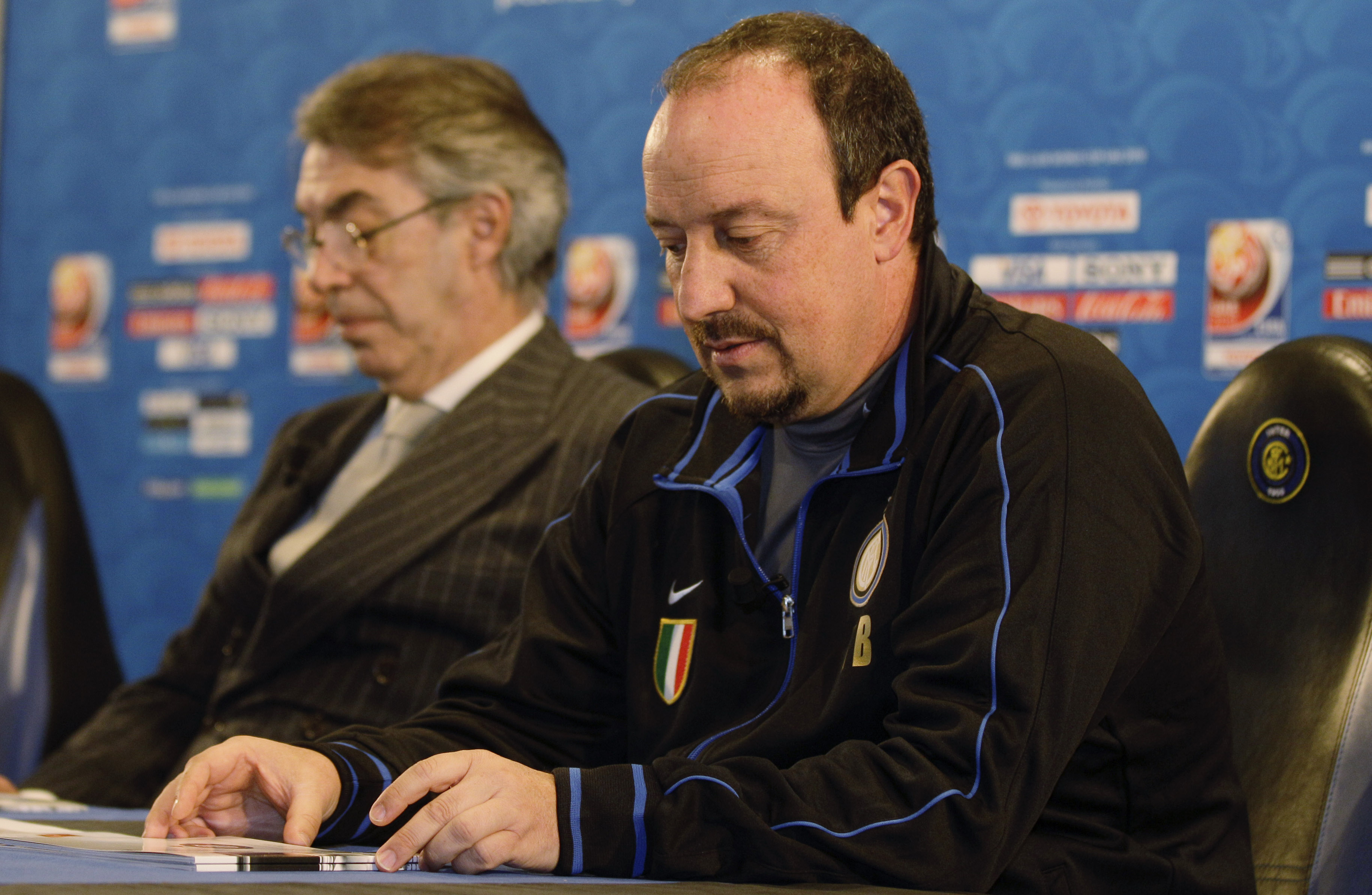
As a Real Madrid fan, surely it must be your ambition to manage them one day? Would you consider coaching Spain – or England, even? Or is the English club game where your heart is these days?
Danny Crouch, via email
I am a professional and Real Madrid are a top side, but I have to consider any offers that I get from any clubs that give me a good option and a good project. At this moment the Premier League is my priority because I think I understand the style.
In Brian Reade’s new book, An Epic Swindle, it says you had to walk the streets of Athens after the Champions League Final in 2007 because you did not have a hotel room. Is that really true?
Gary West, via Twitter
It is true. It was a difficult situation because it was late, the families had to come to our hotel and we did not have many rooms.
Who’s the greatest ever football tactician?
Xavier Lennard, Lyon
It depends on the time. Arrigo Sacchi is someone I think of straight away but I also like Francisco ‘Pacho’ Maturana, who was a coach in Colombia.
Zonal marking – why?
Scott Board, via email
Because it worked well for us. If you see the Premier League statistics, twice we conceded the fewest goals from set-pieces.
You have won trophies in England, Spain and Italy, but is Istanbul your greatest success?
Paul Johnson, Birmingham
Yes. Every time you talk with fans, almost all of them will say the final in Istanbul was the greatest Champions League final of all time, so to have been involved in that – and to have won the game – is very special.
Portrait: Jill Jennings. From the September 2011 issue of FourFourTwo. Subscribe!
